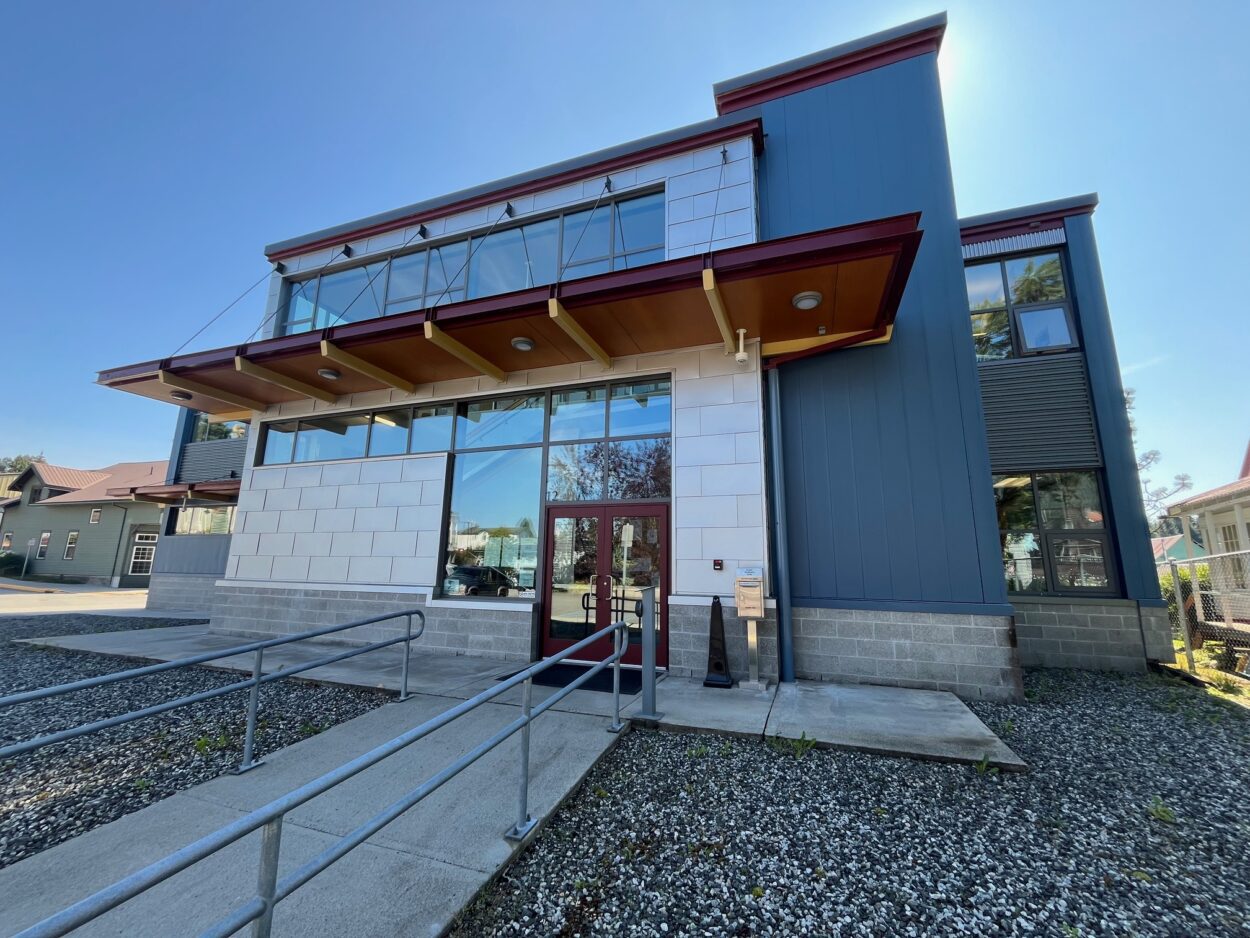
Budgets are tight for some schools in Alaska again this year, but in Petersburg, the borough budget is also tight. Borough officials are saying it’s going to be tough to get the Petersburg School District the local funding school officials say they desperately need.
Last year the Petersburg borough’s budget was nearly $400 thousand dollars in the hole. At an assembly work session with the school board on February 6, Borough Manager Steve Geisbrecht said there will likely be similar problems this year.
“I try not to be a downer at every meeting I’m in these days but, yeah, our budget’s pretty tough,” he said.
Last year the Petersburg Borough gave the school district the maximum amount of funding allowed by law – $3.4 million, up from $3 million the year before. It was the first time the district had requested funding to the state-mandated cap. Even with that local funding, last year’s school budget contained a lot of cuts. School officials say that’s because of a lack of state funding. There has been almost no increase in the state’s per-student funding, known as Base Student Allocation, or BSA, since 2017. But operational costs keep going up.
Schools districts around Alaska are cutting back programs, laying off staff, and closing schools altogether.
Nobody knows what will happen with state education funding this year – so school officials in Petersburg say they’ll ask the borough for the maximum amount again this year.
But the borough’s Finance Director Jody Tow says she doesn’t know where the money will come from.
“We are going to either have to cut expenses or increase property taxes,” she said. ”We saw this coming, and we tried to increase sales tax, and we had the proposition, and it lost by five votes.”
She’s talking about a proposition that would have increased the amount of sales tax the borough could collect in a single transaction. It failed in October’s municipal election. Tow says the borough’s ability to bring in money is limited – either through property tax, or sales tax, which needs to be approved by a public vote. Tow says she plans to suggest the borough assembly increase the property tax.
She says the borough already taxes residents in the borough’s only service area at 9 mills – and ten mills is the limit. She says she plans to propose a .6 mill increase, which would work out to about $60 more per $100,000 of assessed property value. She calculates that will bring in an additional $240,000 to the borough.
But even if that property tax increase passes the assembly, it won’t be enough to balance the budget. Manager Geisbrecht said department heads are still putting together their budget requests so it’ll be a while before they know just how tight the budget is. But he said the borough’s out of options when it comes to increasing their revenue.
“We won’t know for a while how good or bad it is,” he said. “I’m expecting to have to make staffing changes at some point, but don’t know if this will be this year or not.”
Some assembly members had suggestions for cuts to school expenses. Donna Marsh is Petersburg’s vice mayor.
“I don’t know if you’re starting to creatively look at ways to cut,” she said. “One thing – I don’t know, I’m just tossing it out there – is privatizing sports. I know Viking Swim Club has been around for over 50 years, and I don’t know if that kind of discussion has ever been entertained with the basketball or the baseball.”
But School Board President Sarah Holmgrain said that if the district is forced to make dramatic cuts, they’ll be working with the public to figure it out – because it’s Petersburg residents and their kids who will feel the effects.
“What are they willing to live with if you can’t afford to fund to the max and the state’s not doing their job?” she asked. “What are they willing to live with? Are they willing to live with only club sports? Are they willing to live with class sizes of 40 kids? Are they willing to live with no PE or no swimming anymore? What is your threshold of pain?”
Part of the borough’s contribution to the school district actually comes from federal money. Each year the district, via the borough, gets half a million dollars through a program called Secure Rural Schools. The funding goes to schools and municipalities near national forests in place of money that could come from a timber industry. For years, the borough has been saving that money, but in the last couple of years, they gave the district more than twice the amount coming in. At that rate, the fund will be depleted in just a couple years.
And – it gets even more complicated – because that money might not be coming in at all this year. The U.S. House failed to reauthorize the funding in December. But Republican Senator Mike Crapo of Idaho reintroduced the legislation on February 3rd. Funding will continue if the legislation passes Congress.
Mark Jensen is Petersburg’s mayor.
“One of the big questions in the room is, ‘How long can we sustain the funding from the borough if secure rural schools funding doesn’t come from the federal government?’ So does the borough cut positions in all its departments to maintain that funding?” he asked.
Assembly members by and large said they did want to be able to fund the school district to the cap. But as Mayor Jensen said, they weren’t sure how to make it happen.
“I just hope the money falls out of the sky,” he said. “But keep a positive attitude. That’s what you have to do, and just keep moving forward.”
The school district’s budget committee met on February 11. Right now the draft budget is based on maximum local funding, and no increase to state funding. The district plans to present a first draft to the school board in April. The budget will be completed in June.











